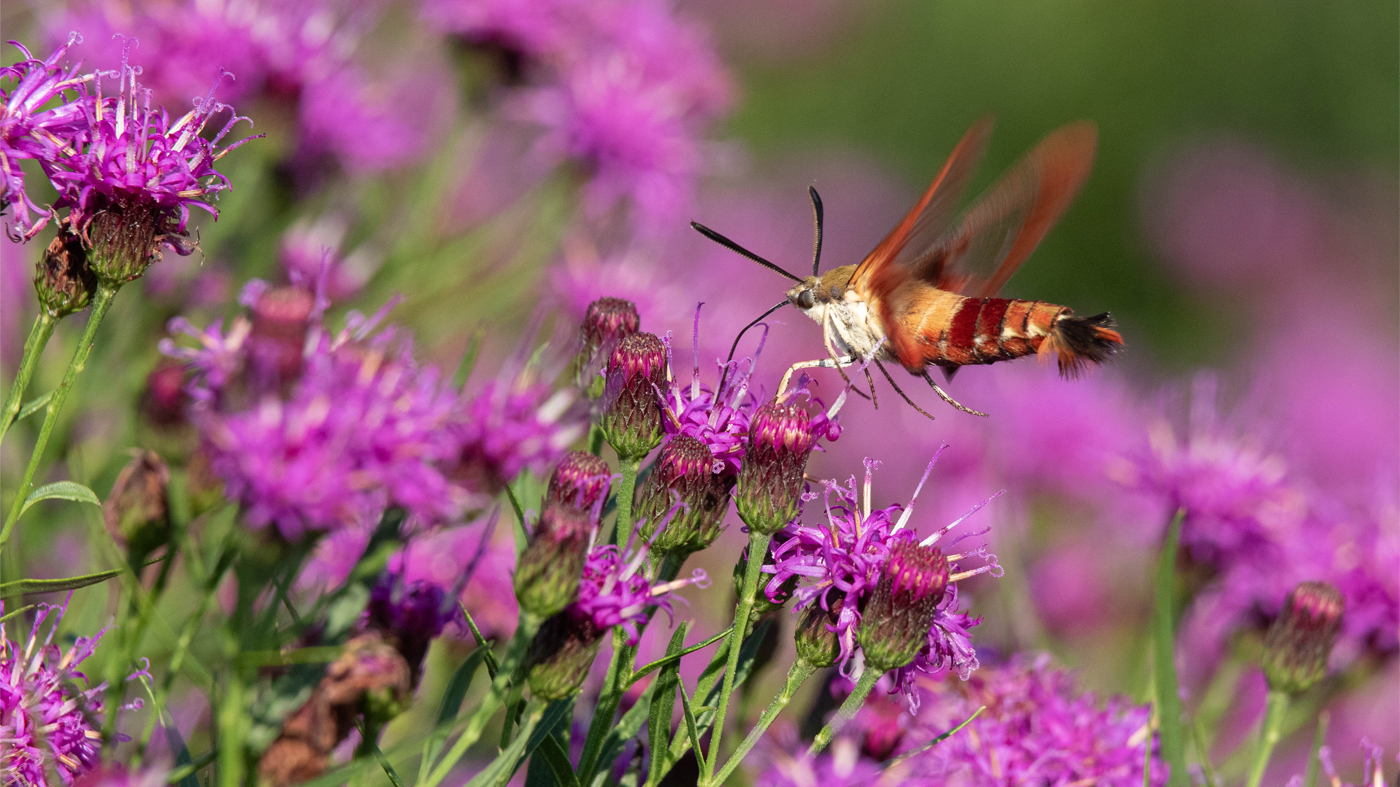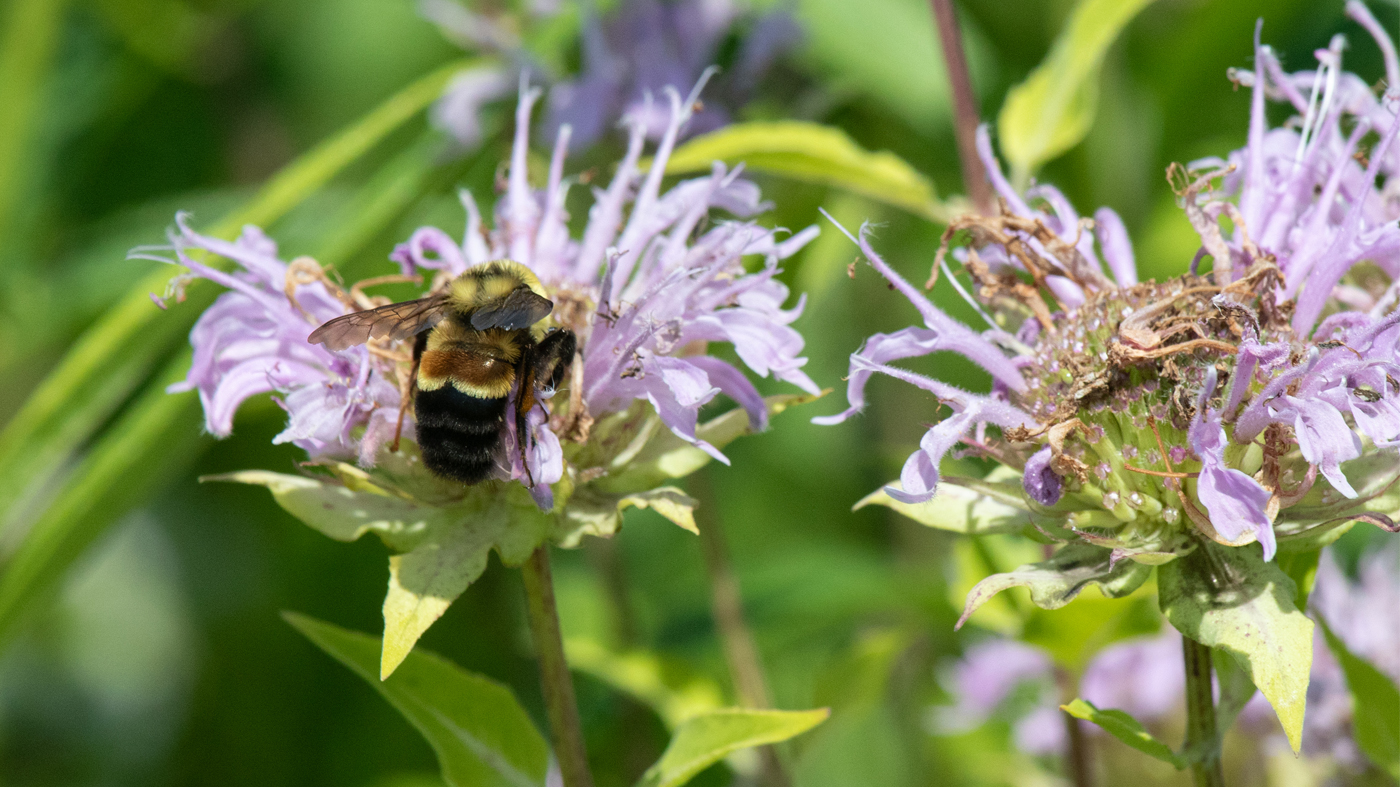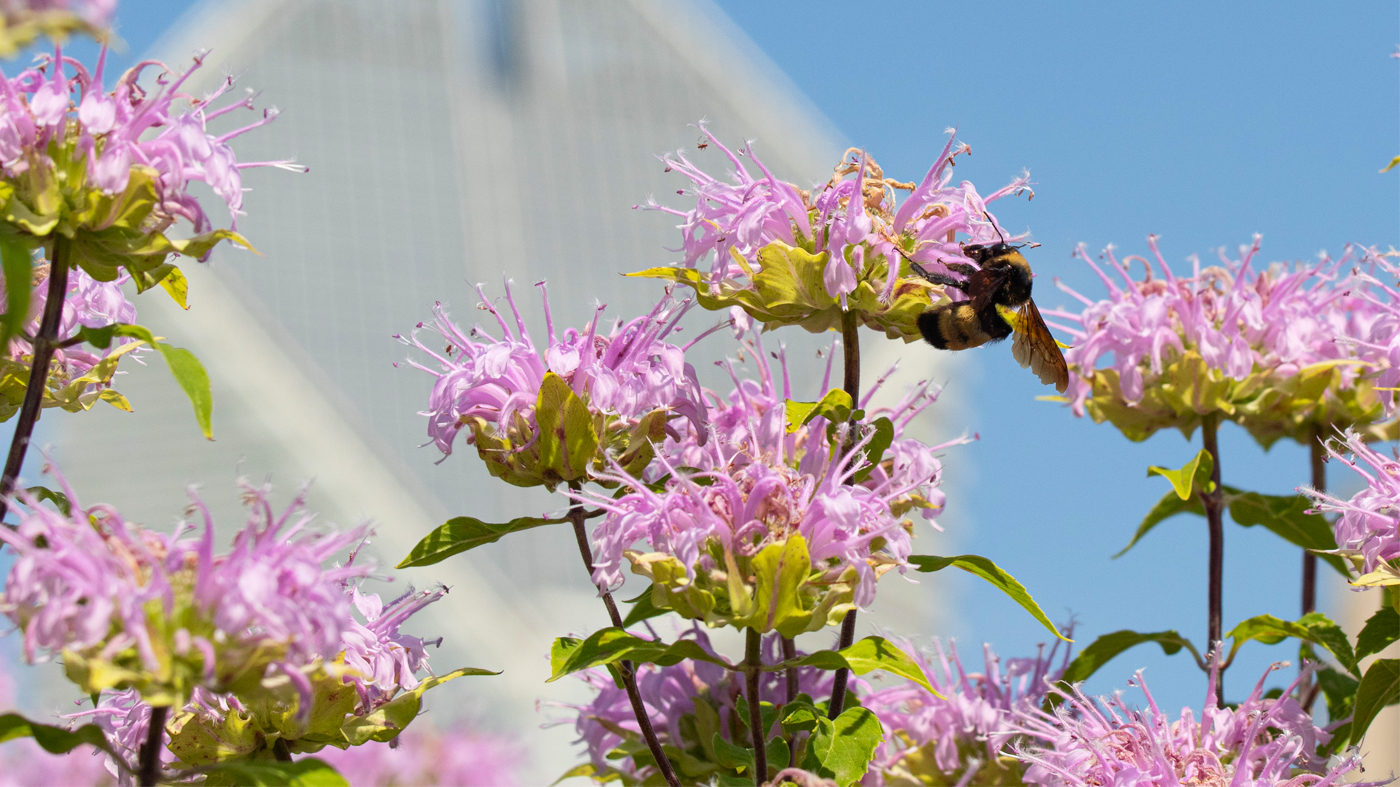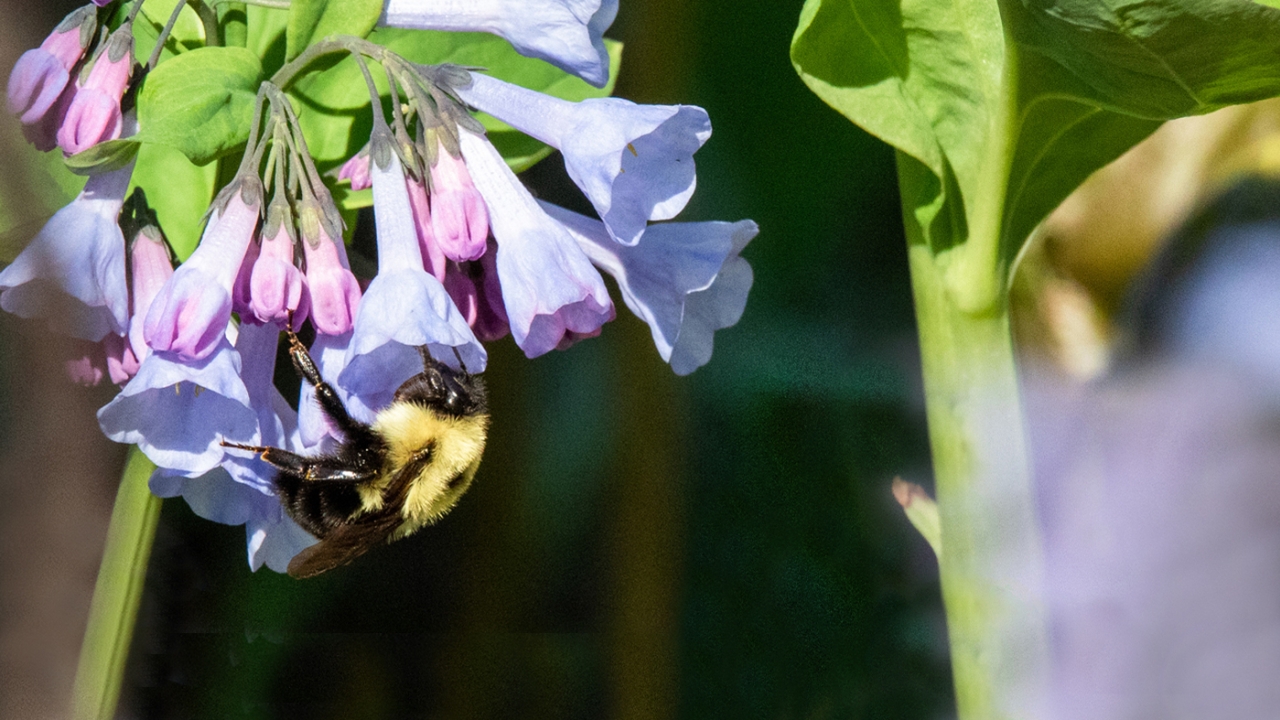
Hummingbird clearwing on ironweed (Vernonia) in the Garden’s Bernice E. Lavin Plant Evaluation Garden. Photo by Nick Dorian.
The Chicago Botanic Garden is developing clear, science-backed guidance to make it easy to support pollinators.
Declines in pollinators like bumblebees and butterflies have inspired efforts to help pollinators in urban and suburban spaces—from home gardens and parks to green roofs and transportation corridors. There is no shortage of advice on “what to plant for pollinators,” but this information can be inaccurate, incomplete, or confusing.
Combining the expertise of the Garden’s pollinator ecologists and Plant Evaluation Program researchers, the Pollinators Living in Urban Gardens (PLUG) program will study how well common garden plants support pollinators and share clear, science-backed guidance for pollinator gardening.
By making it easy to choose plants that provide for pollinators, PLUG aims to transform urban and suburban landscapes in the Chicago area and beyond.

During preliminary PLUG trials, scientists discovered federally endangered rusty-patched bumblebees foraging on flowers at the Garden, showing that designed spaces can help meet conservation goals. Photo by Nick Dorian.
How PLUG works
Through PLUG, the Garden will lead a national effort to integrate science into pollinator gardening while serving as a trusted resource for local communities, nonprofits, and businesses.
Evaluate how well garden plants support pollinators
The Garden’s pollinator ecologists will conduct comprehensive field-based trials—including collaborative research with the Garden’s Plant Evaluation Program—to determine how well common garden plants support diverse pollinators. These trials will help the Garden establish universal standards for evaluating pollinator support in garden plants.
Develop science-backed guidance for pollinator gardening
Using results from plant trials, PLUG will develop guidance that empowers people to make pollinator-friendly gardening and landscaping decisions. Collaborations with nurseries, landscape design firms, and plant production leaders will help the horticulture industry raise the profile of plants that support pollinators.
Inspire and engage people
By building demonstration gardens, interactive tools, and educational programs, PLUG will share best practices and plant recommendations that meet community needs. The program will inspire people to create pollinator gardens and teach them about their garden’s vital role in conserving biodiversity.

Bumblebee on wild bergamot (Monarda fistulosa) in the Lurie Garden at Millennium Park. Photo by Nick Dorian.
The PLUG Vision
PLUG is working toward a future where gardens delight people and provide connected habitats for the pollinators we know are critical to ecosystem and human health. We want to inspire people and support their conservation efforts with clear, accessible resources. We envision a future where scientists, gardeners, and the horticultural industry work together to support pollinators and our future on this planet.

